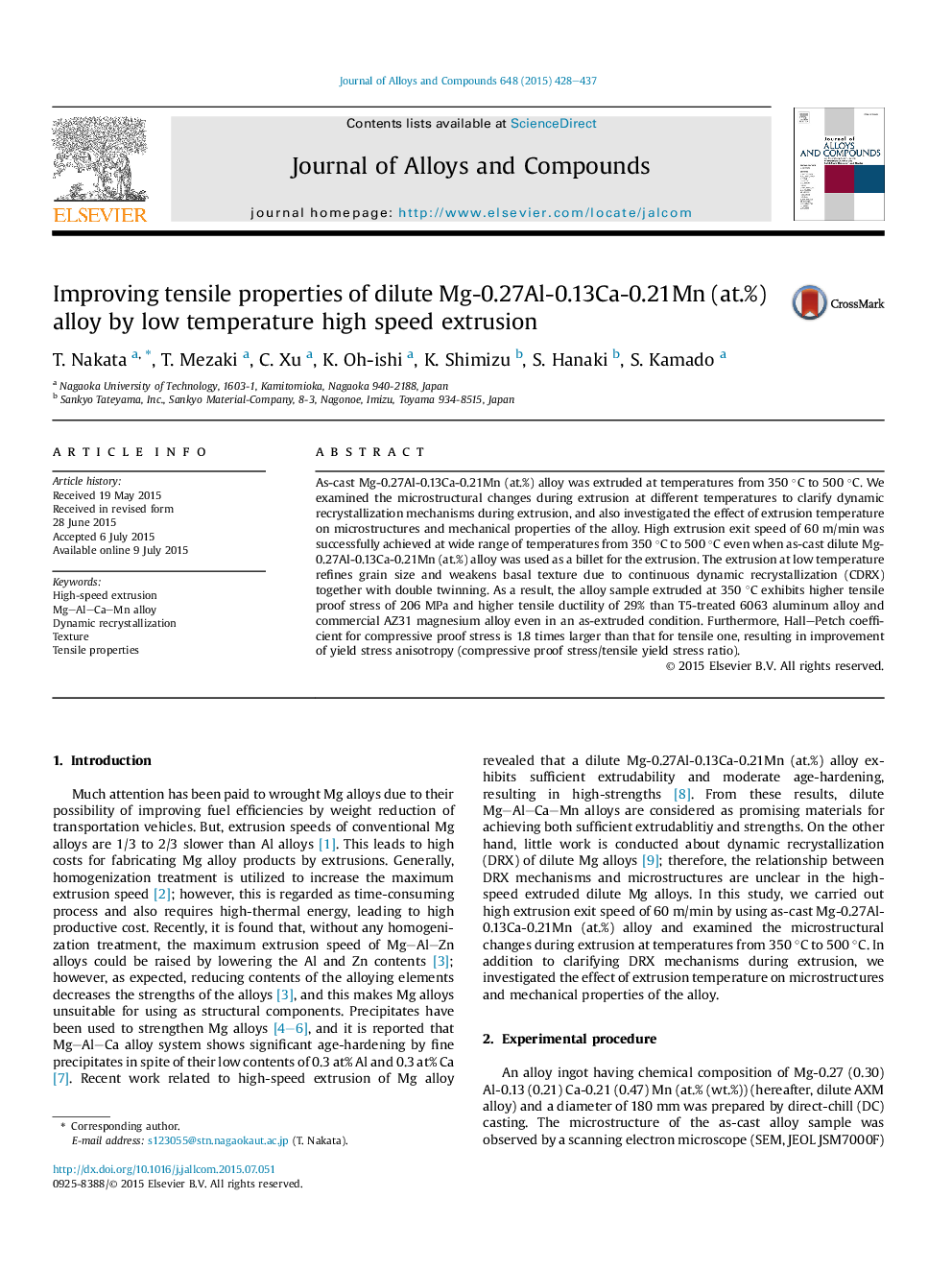| Article ID | Journal | Published Year | Pages | File Type |
|---|---|---|---|---|
| 1608530 | Journal of Alloys and Compounds | 2015 | 10 Pages |
•Dilute Mg–Al–Ca–Mn alloy can be extruded at high die-exit speed of 60 m/min.•The extrusion at low temperature refines recrystallized grain size and weakens basal texture.•Grain refining improves mechanical properties of dilute Mg–Al–Ca–Mn alloys.
As-cast Mg-0.27Al-0.13Ca-0.21Mn (at.%) alloy was extruded at temperatures from 350 °C to 500 °C. We examined the microstructural changes during extrusion at different temperatures to clarify dynamic recrystallization mechanisms during extrusion, and also investigated the effect of extrusion temperature on microstructures and mechanical properties of the alloy. High extrusion exit speed of 60 m/min was successfully achieved at wide range of temperatures from 350 °C to 500 °C even when as-cast dilute Mg-0.27Al-0.13Ca-0.21Mn (at.%) alloy was used as a billet for the extrusion. The extrusion at low temperature refines grain size and weakens basal texture due to continuous dynamic recrystallization (CDRX) together with double twinning. As a result, the alloy sample extruded at 350 °C exhibits higher tensile proof stress of 206 MPa and higher tensile ductility of 29% than T5-treated 6063 aluminum alloy and commercial AZ31 magnesium alloy even in an as-extruded condition. Furthermore, Hall–Petch coefficient for compressive proof stress is 1.8 times larger than that for tensile one, resulting in improvement of yield stress anisotropy (compressive proof stress/tensile yield stress ratio).
Graphical abstractFigure optionsDownload full-size imageDownload as PowerPoint slide
